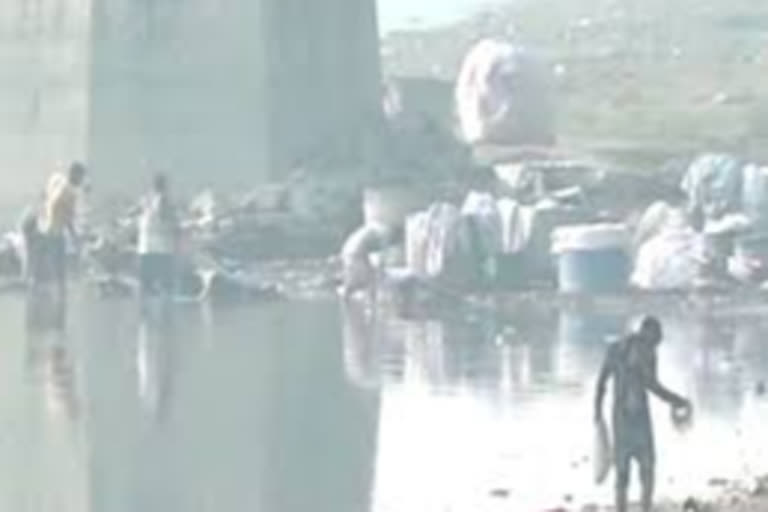New Delhi: The Supreme Court has directed the Central Pollution Control Board (CPCB) to depute an official to file a report on the status of pollution in the Yamuna river at Mathura and the steps required for cleaning it.
A bench comprising Justices Arun Mishra and Ravindra Bhat asked the apex pollution monitoring body to submit a report containing suggestions within six weeks.
The apex court was hearing a plea filed by Uttar Pradesh Pollution Control Board challenging the National Green Tribunal's April 4, 2017 direction to pay Rs 5 lakh for causing pollution in the temple town.
The tribunal had also directed the state pollution control board, to construct a boundary wall between the dumping site and the river to ensure that no waste enters the Yamuna and had ordered the development of a green belt.
"Let an official deputed by the CPCB, inspect the spot and report as to whether the boundary wall has been constructed, as ordered. He shall also report about the development of the green belt and what further improvement is required for clearing of the river," the bench said in a recent order.
The tribunal in 2017 had said: "We have no hesitation in holding that the UPPCB, as well as the Mathura Cantonment Board, have miserably failed to protect the environment and discharge their statutory and public law obligation in accordance with the law in force.
For this reason, they are liable to pay Environmental Compensation (EC) in terms of Section 15 and 17 of the NGT Act.
"Thus, we direct that UPPCB shall pay Rs 5 lakh as EC while Cantonment Board shall pay Rs 10 lakh for causing continuous air, water, groundwater pollution"
It had further said that they have failed to seek permission for the use of trenching ground under the law in force and operating it "without the consent of the Board or without any authorisation and in complete violation and disregard of the Solid Waste Management (SWM) Rules, 2016".
The apex court had later stayed the NGT order.
The NGT judgement was on a plea filed by Mathura resident Tapesh Bhardwaj and others alleging that Cantonment Board after collecting MSW(Municipal Sewage Waste) from areas under its jurisdiction dumped the waste on the Yamuna floodplains.
It had claimed that Mathura Cantonment Board has destroyed the Yamuna river-bed by using it as a landfill site and is also throwing the waste into the river and making the water very toxic.
Also read :WATCH: Tornado-like formation spreads through Gujarat village



